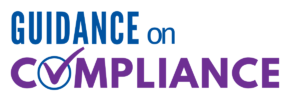For the Speech Language Pathology (SLP) component, the Patient-Driven Payment Model (PDPM) uses a number of different patient characteristics that were found to be predictive of increased SLP costs. These include identification of any diagnosis in the Acute Neurologic clinical classification and identified SLP-related comorbidities.
There are twelve SLP-related comorbidities. These include aphasia, CVA, TIA or stroke, hemiplegia or hemiparesis, traumatic brain injury, tracheostomy or ventilator, laryngeal cancer, apraxia, dysphagia, ALS, oral cancers, or speech and language deficits.
Under PDPM, the presence of cognitive impairment is considered and a patient’s cognitive status is assessed in exactly the same way as under RUG-IV. A patient’s cognitive status is assessed using the Brief Interview for Mental Status (BIMS), or staff assessment, which is completed in Section C of the Minimum Data Set (MDS). Typically, this is completed by nursing or social services and not by a licensed speech pathologist.
Documentation in the MDS under Section K, of the use of a mechanically-altered diet, or the presence of swallowing disorder are the last two qualifiers that go into calculation of the SLP component for PDPM. This is the list of signs and symptoms that demonstrate a swallowing disorder found in Section K. This section must be checked off on the MDS with supporting narrative documentation in the medical record to support the signs and symptoms.

The table below demonstrates how the speech component for PDPM is calculated. Based on whether none, any one, any two, or all three of the first requirements is present, the reviewer then goes to the presence of a mechanically altered diet or one of the swallowing disorders. Based on whether neither, either or both are present, a final SLP case mix group is identified. As you can see from the table, a patient that has none of the first-tier qualifiers and none of the second tier will fall into the SA case mix group with an index of 0.68. This is estimated to contribute a per diem rate of $18.97. Based on the definitions of the scoring, this patient would not have any indications for a speech evaluation or treatment. Yet, the facility would expect to receive a contribution of almost $19.00 per day for not doing anything. You can also see that the SLP case mix indexes go up to 4.19. This is one of the highest case mix index scores. The facility could expect to receive $116.90 per day for this score. This patient, based on the definitions of the scoring, would most likely be receiving speech therapy.
| Presence of Acute Neurologic Condition, SLP Related Comorbidity, or Cognitive Impairment | Mechanically Altered Diet or Swallowing Disorder | SLP Case Mix Group | SLP Case Mix Index |
| None | Neither | SA | 0.68 |
| None | Either | SB | 1.182 |
| None | Both | SC | 2.66 |
| Any one | Neither | SD | 1.46 |
| Any one | Either | SE | 2.33 |
| Any one | Both | SF | 2.97 |
| Any two | Neither | SG | 2.04 |
| Any two | Either | SH | 2.85 |
| Any two | Both | SI | 3.51 |
| Any three | Neither | SJ | 2.98 |
| Any three | Either | SK | 3.69 |
| Any three | Both | SL | 4.19 |
There are several important things to remember with regards to speech:
- Even if you do not provide any skilled speech therapy, based on the coding that the MDS coordinator enters into the 5 day MDS, facilities will always receive some money allocated to the SLP component.
- There are many opportunities to increase the SLP case mix group and the case mix index, and the reimbursement to the facility based on proper documentation and identification of the SLP component requirements.
- Because SLP is paid at 100% throughout the length of stay, it is even more important to capture the most accurate coding for the 5 day MDS.
- The Speech Language Pathologist needs to work with nursing to ensure that documentation and patient assessment of cognition, diets and swallowing disorders are appropriate and accurate.
LW Consulting, Inc. (LWCI) offers a comprehensive range of services that can assist your organization in maintaining compliance, identifying trends, providing education and training, or conducting documentation and coding audits. For more information, contact LWCI to connect with one of our experts!

